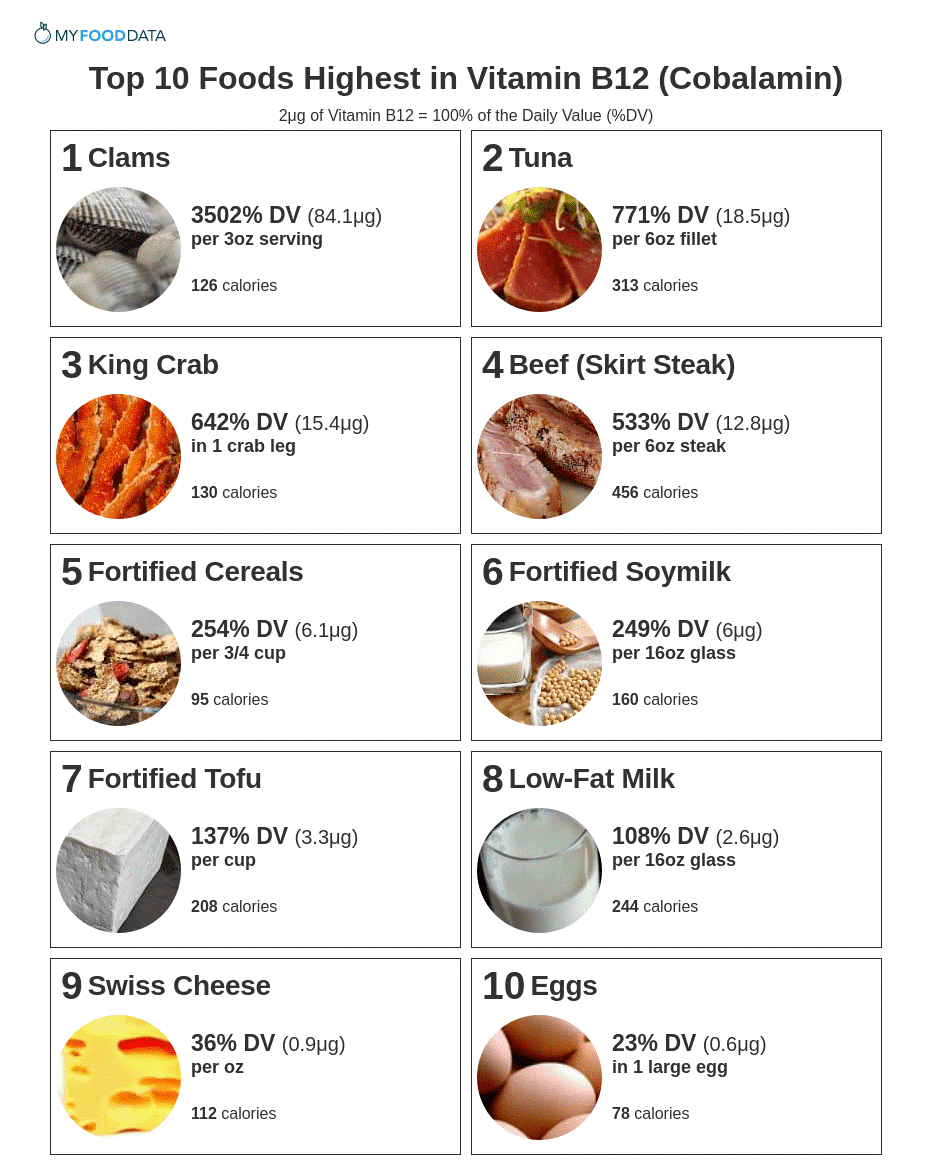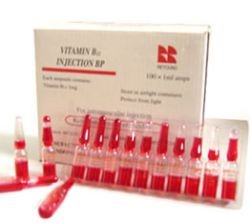Vitamin B12 Deficiency Anaemia screen at Dublin Health Screening
A lack of vitamin B12 (‘B12 deficiency’) is one cause of anaemia. Pernicious anaemia is a condition where vitamin B12 cannot be absorbed into your body. It is the most common cause of vitamin B12 deficiency in Ireland. Vitamin B12 deficiency is easily treated by regular injections of vitamin B12.

What is anaemia and vitamin B12 deficiency?
Anaemia means that:
- You have fewer red blood cells than normal, OR
- You have less haemoglobin than normal in each red blood cell.
In either case, a reduced amount of oxygen is carried around in the bloodstream. There are a number of different causes of anaemia (such as lack of iron or certain vitamins).
Vitamin B12 is essential for life. It is needed to make new cells in the body such as the many new red blood cells which are made every day. Vitamin B12 is found in meat, fish, eggs, and milk – but not in fruit or vegetables. A normal balanced diet contains enough vitamin B12. A lack of vitamin B12 leads to anaemia and sometimes to other problems.
 What are the symptoms of vitamin B12 deficiency?
What are the symptoms of vitamin B12 deficiency?
Symptoms due to anaemia
These are caused by the reduced amount of oxygen in the body.
- Common symptoms include: tiredness, lethargy, feeling faint, becoming breathless.
- Less common symptoms include: headaches, palpitations, altered taste, being ‘off your food’, and ringing in the ears (tinnitus).
- You may look pale.
Other symptoms
Cells in other parts of the body may be affected if you lack vitamin B12. Other symptoms that may occur include a sore mouth and tongue. If left untreated, problems with nerves can develop. For example: confusion, numbness and unsteadiness. These are uncommon as treatment is usually started when the anaemia is found, and before nerve problems develop.
What are the causes of vitamin B12 deficiency?
Pernicious anaemia
Normally, when you eat foods with vitamin B12, the vitamin combines with a protein called intrinsic factor in the stomach. The combined vitamin B12/intrinsic factor is then absorbed into the body further down the gut at the end of the small intestine. (Intrinsic factor is made by cells in the lining of the stomach and is needed for vitamin B12 to be absorbed.)
Pernicious anaemia is the most common cause of B12 deficiency in Ireland. It is due to an ‘autoimmune disease’. The immune system normally makes antibodies to attack bacteria, viruses and other ‘germs’. If you have an autoimmune disease, the immune system makes antibodies against certain tissues of your body. If you have pernicious anaemia, antibodies are formed against your intrinsic factor, or against the cells in your stomach which make intrinsic factor. This stops intrinsic factor from attaching to vitamin B12, and so the vitamin cannot be absorbed into your body. It is thought that something triggers the immune system to make antibodies against intrinsic factor. The ‘trigger’ is not known.
Pernicious anaemia usually develops over the age of 50. Women are more commonly affected than men, and it tends to run in families. It occurs more commonly in people who have other autoimmune diseases such as thyroid diseases, Addison’s disease and vitiligo. The antibodies which cause pernicious anaemia can be detected by a blood test to confirm the diagnosis.
Stomach or gut problems
Various problems of the stomach or gut can be a cause of B12 deficiency. They are all uncommon causes. They include:
- Surgery to remove the stomach or the end of the small intestine. This will mean absorption of vitamin B12 may not be possible.
- Some diseases that affect the end of the small intestine where vitamin B12 is absorbed may affect the absorption of the vitamin. For example, Crohn’s disease.
- Some conditions of the stomach may affect the production of intrinsic factor which is needed to combine with vitamin B12 to be absorbed. For example, atrophic gastritis (where the lining of the stomach is ‘thinned’).
Drugs
Certain drugs used for other conditions may affect the absorption of vitamin B12. The most common example is metformin which is a drug commonly used for diabetes. Other drugs include: colchicine, neomycin, and some anticonvulsants used to treat epilepsy.
Note: long-term use of drugs that affect stomach acid production such as H2 blockers and proton pump inhibitors can worsen B12 deficiency. This is because stomach acid is needed to release vitamin B12 bound to proteins in food. However, such drugs are not causes of B12 deficiency.
Dietary causes
It is unusual to lack vitamin B12 if you eat a normal balanced diet. Strict vegans who take no animal or dairy produce may not eat enough vitamin B12.

What is the treatment for vitamin B12 deficiency?
You will need vitamin B12 injections. About six injections are given at first, one every 2-4 days. This quickly builds up the body’s store of vitamin B12. Vitamin B12 is stored in the liver. Once a store of vitamin B12 is built up, this can supply the body’s needs for several months. An injection is then only needed every three months to top up the supply.
If you have pernicious anaemia the injections are needed for life. You should have no side-effects from the treatment as it is simply replacing a vitamin that you need. If the cause of your lack of vitamin B12 is diet related rather than due to pernicious anaemia then treatment may be different. That is, after the initial treatment with injections of B12, dietary supplements of B12 (cyanocobalamin tablets) may be advised instead of injections.
Oysters and clams are surpassed only by liver as good sources of Vitamin B 12

